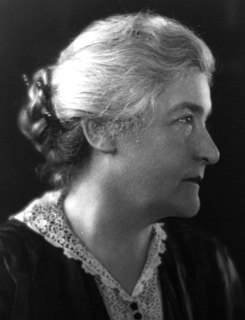A Quote by Amartya Sen
China had managed to reduce their fertility to a large extent because of basic expansion of women's education, not because of the one-child family.
Related Quotes
I firmly believe that if you help a woman, then you educate a child, you help the family. Because women are very focused on health care and education and on the family. So if you help a woman, you help the family, you help the village, you help the country. And so empowering women is a very important part of moving, not just women forward, but the economy of the nation forward. Particularly in very substandard nations.
I was a child of the women's movement. Everything I had learned was from my mother and my grandmother, who both had a very pioneering spirit. They had to, because they had to change flat tires and paint the house - because, you know, the men didn't come home from the war or whatever else, so women had to do these things.
Basic would never have surfaced because there was always a language better than Basic for that purpose. That language was Joss, which predated Basic and was beautiful. But Basic happened to be on a GE timesharing system that was done by Dartmouth, and when GE decided to franchise that, it started spreading Basic around just because it was there, not because it had any intrinsic merits whatsoever.
When women earn the money for the family, everyone in the family benefits. We also know that when women have an income, everyone wins because women dedicate 90% of the income to health, education, to food security, to the children, to the family, or to the community, so when women have an income, everybody wins.
Because in traditional Hindu culture menstruation is associated with a variety of social taboos, prolonged menstrual bleeding produced conflicts within families. The whole idea of fertility regulation was still extremely new in this setting and many husbands and other family members were angry when they found out that women had decided on their own to use the method and had gone to the clinic in secret.
I don't think that the leadership of Montgomery was prepared to capitalize, let's put it, on the projection that had come out of the Montgomery situation. Certainly, they had not reached the point of developing an organizational format for the expansion of it. So discussions emanated, to a large extent, from up this way.
We had early on women having the right to vote, then women in the workforce during WWII, just going back in history, and then we had the higher education of women, and then women more fully participating in the economy and in business, the professions, education, you name the subject... but the missing link has always been: is there quality, affordable healthcare for all women, regardless of what their family situation might be?
Post-genocide Rwanda has managed to implement a good universal health insurance scheme that covers a large proportion of the population. This came about because of the severity of the country's problems and the resulting high proportion of women in the parliament and among professional caregivers, which had a positive effect on policy.
Women while in college ought to have the broadest possible education. This college education should be the same as men's, not only because there is but one best education, but because men's and women's effectiveness and happiness and the welfare of the generation to come after them will be vastly increased if their college education has given them the same intellectual training and the same scholarly and moral ideals.
I think it's important that when people are struggling, that you not run away from them if you love them. Kristen, I mean, I look at the room tonight, you know, Kristen Stewart and Claire Danes, Jennifer Lawrence, all these young women that I worked with who basically were child actors like I was a child actor. And then I feel very protective of them, because even though I think I have managed to get through the process relatively sanely, I have my scars, and I hope to be in some ways a member of their family that's out there protecting them.
The whole world population rests on women. You have to start with the woman. And the woman will make her own decisions. If you want to have five or ten children, fine. You can have big families or small families, but you have the family you feel you can afford or feed. In China the one - child policy is already finished - on its way out because the economic conditions end up producing the same effect. If people want an expensive flat in a place like Shanghai, you can't have more than one child or two.







































